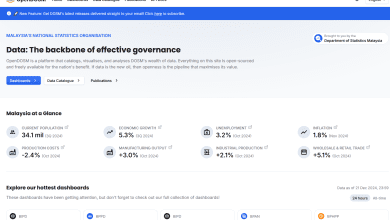Follow the World Bank Procurement Guidelines
By Koon Yew Yin


“We need to do away with some of the unnecessary projects, for example the high-speed rail, which is going to cost us RM110 billion (S$37 billion) and will not earn us a single cent. That will be dropped.”
The newly-appointed Malaysian Finance Minister, Mr Lim Guan Eng said last week that the nation’s total government debt, including liabilities from the scandal-hit 1Malaysia Development Berhad (1MDB) state fund, had spiralled to more than RM1 trillion, or 80 percent of gross domestic product.
The quickest way to save money is to scrap all the contracts awarded by the BN Government without open competitive tenders.
Although it is necessary to spend huge sums of money on infrastructures, it must be carried out in the proper way. The best and only way is to follow the World Bank procurement guidelines.
Soon after Malaysia got independence from the British in 1957, our government borrowed a large sum of money from the World Bank for the Muda River irrigation project in Kedah and Perlis to enable us to produce double the amount of rice. Before the project implementation we could only grow one crop of rice during the north-east monsoon.
I was one of the contractors for the Muda Irrigation project. That was how I founded Mudajaya which joined up with IGB and Jurutama to become IJM Corporation Bhd eventually.
The World Bank gave out cheap interest loans to help underdeveloped countries, and Malaysia was an underdeveloped country then.
Anyone can get the World Bank procurement guidelines for free by typing “World Bank procurement guidelines” on google search. This system will prevent corruption even in the most corrupt countries in the world. Malaysia must follow this system.
The BN government often gave out huge contracts and concessions without open competitive tenders. Sometimes, the BN government just called a few contractors to submit their proposals for consideration. Each contractor would submit his own proposal with his price. How could the government select the cheapest and the best contractor? How could the government compare apple, orange or banana?
Who can refuse a one billion Ringgit bribe?
I cannot imagine any government official would not be tempted to accept a RM1 billion bribe when he is involved in the negotiation of a multi-billion Ringgit contract.
What is the difference if contract price is RM110 billion or RM109 billion? Who can refuse a RM1 billion bribe?
The complete World Bank procurement guidelines is more than 100 pages long. Let me give you a summarized version of the guidelines.
The Best Way to Evaluate Tenders
The best way in terms of award of tenders is for government to follow the guidelines as established by the World Bank. Incidentally, these procurement guidelines are easily available over the website and are even applied in some of the most corrupt countries of the world in an effort to reduce corruption.
Firstly, the government must engage a reputable engineering consulting firm which has experience with similar projects to put up a proposal and to open the project bidding to all contractors to tender. All the contractors must be pre-qualified based on both their technical and financial ability. All contractors must submit tenders conforming to the original design so that the cheapest tender can be selected. If all the contractors are pre-qualified, the government tender board has only to look at the tendered price. Always award the contract to the contractor who submits the cheapest tender assuming that all the other criteria are met.
It is important not to allow anybody from the government to negotiate with any contractor to avoid corruption.
Finally, transparency and accountability require that all documents on the proposal be placed in the public sphere – not just limited information but detailed and full breakdowns in accordance with international best practices.
If we want to reach the status of a highly-developed nation, we must immediately implement the standards of economic good governance, accountability and transparency that come with it.


